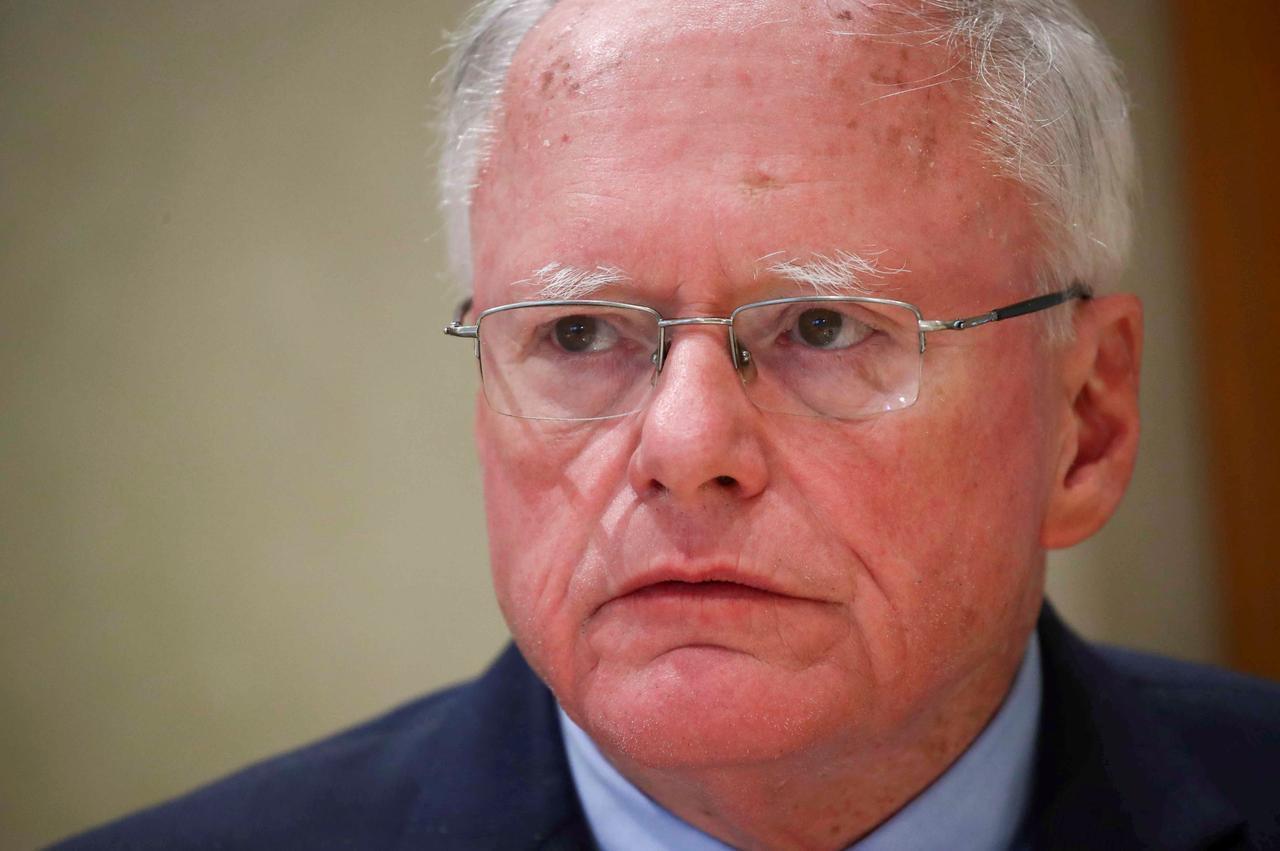
James Jeffrey, U.S. Special Representative for Syria, addresses the media after a meeting with senior officials from seven Arab and Western countries along with United Nations Special Envoy Geir Pedersen in Geneva, Switzerland Oct. 25, 2019. (REUTERS File Photo)
James Jeffrey, the U.S. special envoy for Syria engagement and fight against ISIL, will pay a visit to Turkey on Feb. 12 amid recent escalation in Syria’s last rebel bastion of Idlib, a province in the country’s northwest.
The U.S. recently stepped up warnings toward Russia over its Syria policy, saying Moscow was trying to challenge the U.S. presence in northeastern Syria by violating the terms of a de-escalation agreement and was also helping escalate the fighting in the northwestern province of Idlib.
Last week Jeffrey said the United States was “very, very worried” about the Syrian government assault, backed by Russia, on Idlib, and he repeated calls on Moscow to stop it. “This is a dangerous conflict. It needs to be brought to an end. Russia needs to change its policies,” he said.
“We’re seeing not just the Russians, but Iranians and Hezbollah actively involved in supporting the Syrian offensive. We don’t know whether the offensive is just to get to the M4-M5 road, or it may continue further,” Jeffrey said, in reference to the strategic highways connecting Syria’s Aleppo to Hama and Latakia on the Mediterranean coast.
Jeffrey said Moscow could change its policies and meet the requirements of the international community without ousting Assad. “Those requirements are not unreasonable... They require a change in that [President Bashar al-Assad’s] government’s behavior. That government would not survive a week without Russian assistance.”
The Idlib violence has accelerated in recent months despite several cease-fire efforts, including as recently as January. The U.S. envoys visit comes amid rising tension between Ankara and Moscow over the latter fails to stop regime aggression in Idlib which caused escalation between Syrian forces and Turkish troops.
Turkey said it retaliated on Feb. 10 after intense shelling by Syrian forces killed five soldiers and wounded five others Idlib, a marked escalation a week after a similarly deadly clash between the two sides.
The exchange of fire came as a Russian delegation held two rounds of talks in the Turkish capital of Ankara during which they exchanged proposals over Idlib.
The Russian team then held talks with İbrahim Kalın, Turkey’s presidential spokesperson.